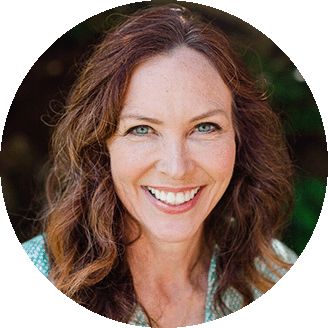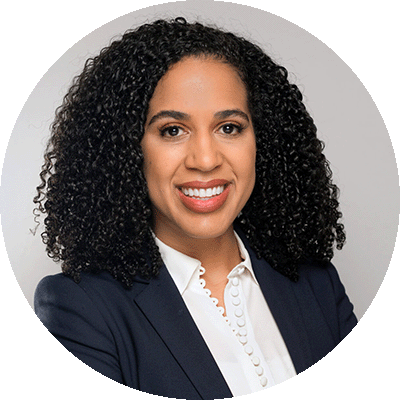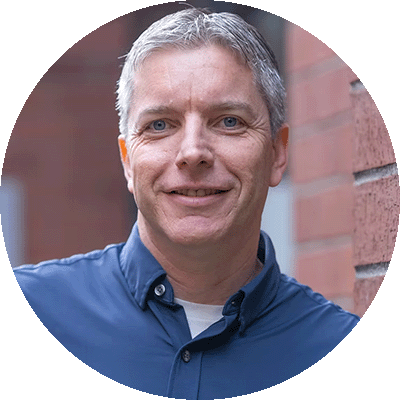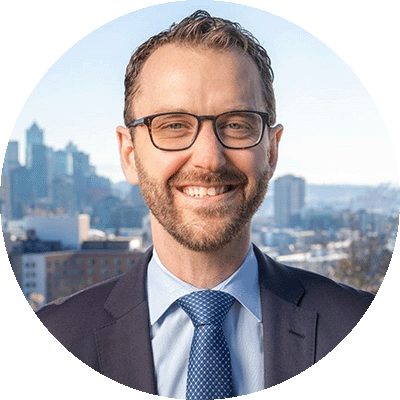Seattle City Attorney
Meet the Candidates

Ann Davison
Rating: strongly aligned
neighborsforann.com

Erika Evans
Rating: mostly not aligned
electerikaevans.com

Rory O’Sullivan
No rating — did not respond
electroryosullivan.com

Nathan Rouse
No rating — did not respond
voterouse.com
Question 1
The DSA’s core mission is to create a healthy, vibrant downtown for all. Do you support recent downtown safety measures including increased police patrols, expanding the CARE department, implementing Stay Out of Drug Areas (SODA), and contracting for new jail space? What further steps would you take to improve safety downtown?
» next / all
Ann Davison
I support increased police patrols throughout downtown to where officers can go on foot patrol sometimes. Having officers visible will help deter some crime and continue our economic growth for our downtown area. I fully support implementation of SODA which is why I proposed the law in the first place. The legislative intent of the underlying drug use law is recovery for people in addiction. The legislative intent for SODA is to protect public places so they are safe and accessible to all. Having SODA used effectively everywhere should occur and for our downtown is crucial as we continue to look to disrupt entrenched open air drug markets to foster economic vitality. Additionally, I think graffiti reduction is important and thus have proposed a supplemental way to help deter that through civilly litigating and fines, abatement costs or clean up time by the civil defendant.
Erika Evans
Seattle deserves a downtown that is vibrant, safe, and welcoming for everyone. I’ve worked downtown, my family works downtown, and I bring my young nieces and nephews there.
As a former city and federal prosecutor, I’m the only candidate in this race with experience handling both local misdemeanors and major federal cases, including high-level fentanyl trafficking, violent crime, crimes against children, and hate crimes. I’ve seen what actually improves safety and what doesn’t.
SODA and SOAP zones do not reduce crime or improve outcomes. They are ineffective and just displace people in crisis and push them further from services. That’s not real safety.
Contracting more jail space, especially at places like SCORE, is not the answer. That facility has a troubling history. People have died there, and the conditions are inhumane. I oppose the use of private or for-profit jails.
Instead, we need to expand the CARE Department and other crisis response programs. Officers are being asked to respond to situations they are not trained for. When someone is in a mental health crisis or struggling with substance use, they need treatment and support, not jail.
We should create a reimagined Community Court, different than before, with accountability and strong wraparound services. When done right, it connects people to housing, treatment, and jobs. It reduces repeat offenses and saves public dollars.
As City Attorney, I will work with our county prosecutors to refer high-level crime while expanding diversion and treatment for lower-level cases.
We must invest in what actually works: housing, behavioral health, and real alternatives to incarceration. That is how we build lasting public safety downtown and across Seattle.
Question 2
The downtown community is impacted by criminal activity that is sometimes caused by individuals suffering from addiction or mental health issues, some of whom are unhoused. Can you explain how you, as City Attorney in the next four years, will make decisions on when to file criminal charges and seek jailtime and when to instead seek diversion? What needs to be changed in Seattle’s criminal justice system and/or diversion and treatment landscape to reduce recidivism?
» next / « previous / all
Ann Davison
I am very familiar with this issue and have been focused on it in my first term. There is a disconnect in how our systems were set up and where treatment is available. Because I brought a cutting-edge, never-before-had level of data transparency at the City Attorney’s Office, I am able to highlight where the system is taking its longest from both my own internal processes for my own management and decision making, to other segments of the system. I launched the High Utilizer Initiative in March 2022 which continues to today, based upon data for who is a repeat offender, and this work continues with KCPAO weekly.
I also have doubled the programs available for diversion. Importantly, diversion needs to be available for when a defendant has not shown a repetitive form of conduct resulting in many police referrals. The hope is to redirect the person early toward societally contributing instead. If a person is found incompetent however, the state legislature in 2019 deprioritized mentally restoring misdemeanor defendants so it is rare for my office to get a psychiatric bed for this treatment; and the community treatment is not fully available, so they are sadly often released, and the community is at the frontline again. The system for incompetency from either drugs or mental illness is set up that unless and until a felony is committed the mental restoration is not prioritized. This is an issue larger than just the City Attorney’s Office. If the person is not found incompetent but has a number of referrals and diversion programs which require a lot of engagement are not suitable, jailtime may be requested by my prosecutors.
Erika Evans
The City Attorney’s Office handles misdemeanors, not felonies. The most serious misdemeanors are domestic violence, assaults, and DUIs. These cases do deserve urgency to keep the public safe. But under the current City Attorney, they’re taking longer to file than they did under the previous administration. That’s unacceptable and unfair to survivors and victims who are waiting for justice.
The Seattle Municipal Court is a misdemeanor court, which means the maximum sentence someone can receive is up to one year in jail—but in reality, judges rarely impose that. Most people who are charged will be back in the community quickly. That’s why it’s so important that we use that time wisely. Filing charges just to cycle someone through the system without offering treatment or support is a missed opportunity and a waste of public resources. And it cost taxpayers more. It doesn’t make us safer, and it doesn’t break the cycle.
I have served as both a city and federal prosecutor. I have handled everything from misdemeanor assaults to federal hate crimes, high level fentanyl trafficking, violent crimes against children, hate crimes, and wage theft. I know how to prioritize cases, use discretion, and pursue accountability in a way that protects public safety while also giving people a real path to stability.
For those whose challenges are rooted in addiction, mental health, or homelessness, we need alternatives to incarceration that actually work. That means expanding programs like LEAD, pre-filing diversion, and partnerships with behavioral health providers.
I will also work closely with crisis response centers, and community-based groups to make sure people in crisis get connected to housing and care, not just arrested and released.
With the right leadership, the City Attorney’s Office can deliver real safety, reduce harm, and make our system more fair and effective for everyone.
Question 3
If there are any important details about your candidacy that you were unable to provide in response to the previous questions, please take this opportunity to share that information here:
» next / « previous / all
Ann Davison
Candidate did not respond.
Erika Evans
Additional information:
I am proud to be the only candidate endorsed by Attorney General Nick Brown, the Alliance for Gun Responsibility, and Moms Demand Action. I’ve also earned the support of King County Prosecutor Leesa Manion, former judges at every level, and community leaders who trust my experience and commitment to real solutions.
What sets me apart is that I’m the only candidate who has worked at the line level to improve public safety. I have spent my legal career holding people accountable while addressing the root causes of crime.
As a City Prosecutor, I saw how the system often fails to stop the cycle of repeat offenses. As an Assistant City Attorney, I worked on civil rights and public safety issues that hit close to home for me and my family. As a federal prosecutor, I handled complex, high-level cases.
This office has the power to do more than react. We need to be proactive—partnering with health experts, city agencies, and community groups to reduce repeat offenses and build real safety.